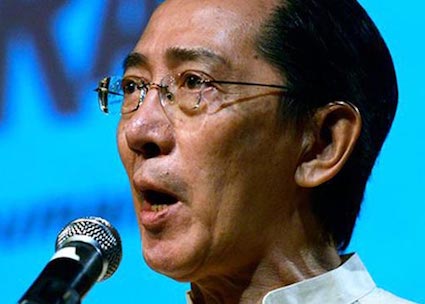Corruption in Pakatan’s political appointments

Kua Kia Soon, Free Malaysia Today
Pakatan Harapan rode to power in the 14th general election (GE14) on a groundswell of disgust that Malaysians felt against the blatant scale of corruption committed by the former Barisan Nasional administration.
While PH targeted former prime minister Najib Razak and the 1MDB scandal in their campaign strategy, the coalition was fully aware of the fact that corruption extends beyond bare-faced kleptocracy.
That is why the PH manifesto in GE14 decried the patronage practised by BN in appointing politicians and their partisans in state institutions.
It is time Malaysians took a stand on these facets of corruption in our institutions. If we don’t, we will find our country is forever doomed to an age of mediocrity.
What is alarming is that since PH came to power on May 9 last year, they have reneged on this most important of promises and we have seen more and more cases of political patronage and co-option of NGO activists into state institutions.
Political patronage involves the appointment or hiring of a person to a government post on the basis of partisan loyalty. Such appointments at the national, state and local levels of government are used to reward the people who help them win and maintain office and to build strength within their respective parties.
It is time for all Malaysians who had hoped for a “new Malaysia” to call for a halt to this “moneyless form of corruption” and to restore merit-based criteria for entry into state institutions.
Moneyless form of corruption
This “moneyless form of corruption” that Transparency International calls “patronage” is important and insidious where the state appoints friends, relatives, political supporters, including NGO activists, into public jobs which, without the official’s influence, they would not obtain.
Thus, without hiring/appointing personnel on the basis of merit, such placements ensure that society as a whole suffers as Malaysia has suffered all these years.
Today, the prime minister controls Malaysia’s leading investment arm and sovereign wealth fund, Khazanah Nasional, while Economic Affairs Minister Azmin Ali controls numerous government-linked companies (GLCs) that were once controlled by the finance ministry.
PH had pledged in their GE14 manifesto that politicians would not be appointed as directors of government enterprises. Furthermore, at the Sept 1, 2018 Congress on the Future of Bumiputeras and the Nation, Prime Minister Dr Mahathir Mohamad stressed the need to reinstitute the practice of “selective patronage”, targeting Bumiputeras.
Prof Terence Gomez, who has studied corporate scandals in Malaysia, reminds us:
“A thoughtful assessment of these scandals would have exposed a structural framework that allowed politicians to exploit institutions in various ways to serve vested political and economic interests.
“One possible reason why the NACP (National Anti-Corruption Plan) does not assess this structural framework that so easily facilitates corruption is its focus on individuals and integrity, linking them to governance and ending with a discussion on the abstract concept of ‘human governance’, with the ultimate aim of ‘Living Correctly, Not Corruptly’. Such slogans will not eradicate corruption.”
Appointing cronies regardless of qualifications
The recent revelation of public officials with dubious academic qualifications exposes the nature of cronyism. Cronyism is the practice of partiality in awarding jobs and other advantages to friends, family relatives or trusted supporters, regardless of their qualifications. This includes doing favours for partisan organisations and giving desirable ambassadorships to exotic places.
By manipulating the screening and selection of executive bureaucrats, political leaders can indirectly control the policy preferences that are carried out and enforced.
It is instructive that the Madras High Court has recently ruled that “political interference and influence in appointments is also corruption”.
Merit appointments and effectiveness of the bureaucracy
The 1997 World Development Report emphasised the important link between merit appointments and bureaucratic capability. The report had delved into the depth of political appointments in government departments. It stressed merit-based appointment as a plank in an anti-corruption strategy.
Merit can be defined as “the appointment of the best person for any given job”. It is well-known that in any organisation, good selection methods lead to the subsequent performance of staff and the organisation as a whole.
A visible merit-based appointment system, where breaches of good practice are self-evident, clearly makes it easier for citizens to hold the government to account in this area. We thus need a politically neutral, merit-based career civil service.
Ultimately, institutional mechanisms, such as the Ombudsman, Auditor-General’s Office, or one-time commissions aimed at curbing corruption must be given teeth to do their job. More importantly, the role of the media and pressure exercised by members of the public are crucial when it comes to holding officials accountable.
Kua Kia Soong is the adviser to Suaram.

